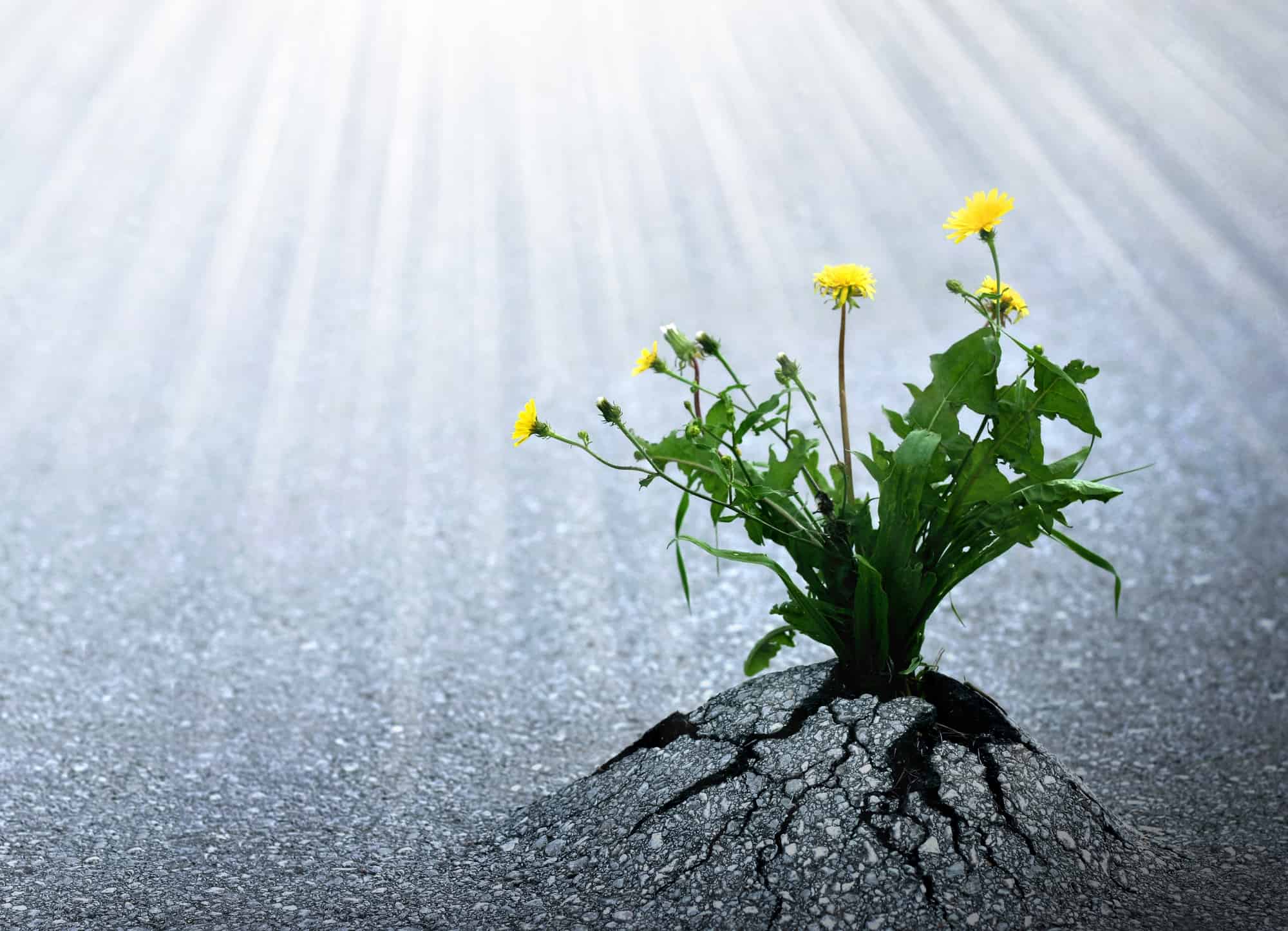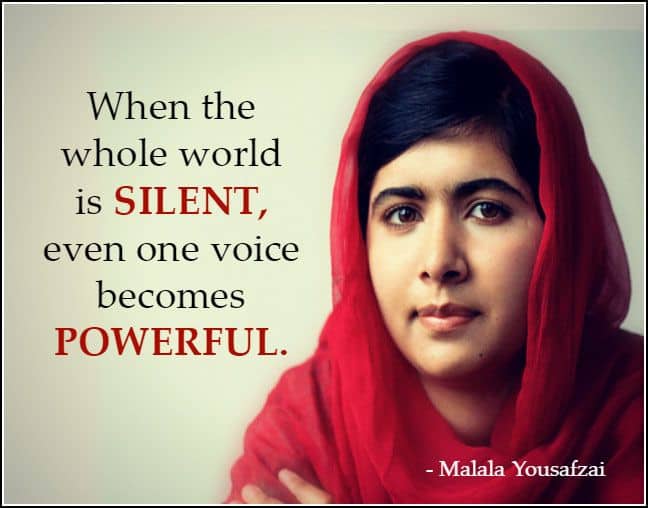What is resilience and how can it help you throughout your life?

Resilience is a term you’ve probably heard or seen on social media, but do you know what it implies? It is an intrinsic force that helps us face and overcome any calamity, which we can learn to develop as an important part of our personal growth.
This quality is present in all human beings to a greater or lesser extent; however, it manifests itself in various circumstances of our life and constitutes one of the most important tools for the human being.
In the following article we will approach resilience from a psychological point of view and we will reveal the keys that you need to know to start being a truly resilient person. Keep reading!
What is resilience?
According to the dictionary, resilience is the disposition that human beings have to assume various difficult situations with an assertive attitude adapt to them and manage to overcome them. However, psychology extends this concept a little more: “the adverse or traumatic scenarios of our existence are not only overcome thanks to resilience, it also helps us to come out stronger from all this, with more experience and better tools at an emotional level “.
Throughout our lives we are acquiring psychological resources that we can only obtain with our own experience, that is why resilience implies restructuring and innovating in our own resources according to the circumstances we are experiencing. And this is the most outstanding characteristic of resilient people, not only are they capable of overcoming adversities, they also use these negative situations to grow emotionally and spiritually, developing their potential to the maximum.
Resilience arises in large part from the analysis and introspection that people are capable of doing in different contexts. When we find ourselves in an unfavorable position and have run out of tools, the need to find a solution, either based on our own ideas or resorting to the support of others.
Every resilient person in an unfortunate circumstance knows that calm comes after the storm, so they gain the calm, patience, and strength they need to manage their own emotions.
What are the characteristics of a resilient person?
There are some fundamental pillars that characterize resilience against other human resources. Next, we will name the most outstanding characteristics of resilient people that you will be able to develop from introspection and self-knowledge.
- They maintain a wide circle of family and friends:
Resilient people are autonomous and maintain a positive attitude at all times, and although they operate in an individualistic dynamic, they rely on the emotional ties they have with family and friends. In other words, they are able to endure emotional pain and reflect on it without closing in on themselves while maintaining the quality of their links in a constructive way.
- They have a creative inner world:
Resilient people do not process the world around them from a superficial point of view, on the contrary, they are usually people who are not afraid to look inside themselves and delve into their being. For them, when the outside world treats them harshly, they look to their inner world for a refuge to color their lives. It is not an escape, resilient people do not seek to flee their problems, just make them more bearable. That is why before falling into crisis they prefer to drain their emotions by carrying out various activities that will depend on the preferences of each person, but always supported by positive thoughts that help them maintain their emotional balance.
- Able to adapt to changes:
Resilient people do not fear change; they understand it as an important part of our existence and of the dynamism of life. Even when the variations that their destiny may take are not exactly what they expected, they usually take an open position to accept the changes and adapt to them. Depending on how painful this change is, they can cope without help or by relying on their ties to family and friends.
- They practice gratitude as a philosophy of life:
Even though they are going through great pain or disappointment, resilient people understand the importance of being grateful to life. Practicing gratitude gives you a bigger picture of your reality by helping you focus more on positive things, which you use as an impulse to continue.
- They have a great sense of humor:
Laughter is a powerful tool that helps us cope with anxiety as well as reduce stress. Resilient people know that dealing with situations in a good mood will make even the most difficult situation much more tolerable. That is why they rely on their good sense of humor to positively solve everyday problems.
How to become a resilient person?
Now that you know the key characteristics of resilient people, it’s time for you to start developing your own inner strength. Resilience is a practice that can be developed and trained throughout life through small actions such as:
• Nurture your life with new interests. Cinema, the arts, painting and drawing, music, reading, yoga, meditation or writing can help you enrich your worldview, strengthening your concept of the beauty associated with your existence.
• Take emotional and spiritual growth courses. You don’t have to go to a retreat, or enroll in an academy if you don’t want to. You can also search for books, documentaries, podcasts and any type of material that helps you expand your personal development.
• Cultivate healthy relationships and care for the social ties that are part of your life right now. Talk to your family, do not forget your friends, and make small meetings to share with each one, remember that they will represent your support network in the most difficult moments.
• Although introspection is a good thing, also stop to observe the world around you. All people have a personal struggle that they endure on a daily basis. Dedicate yourself to knowing the stories of others and take as a model those resilient people closest to your environment.
• Keep a gratitude journal. You don’t have to write too long texts, just take 5 minutes a day to write down everything you should be grateful for, from the small things to your greatest achievements and successes. It will help you realize how lucky you are and that perspective will be decisive in developing resilience in your life.
How do resilient people think? How does resilience manifest in their lives?

The great secret of resilient people to face the difficulties of life is their way of thinking. Someone who has developed resilience, is able to control their emotions, knows how to identify the emotion they are feeling, and finds the best way to manage it without hurting others or damaging their interpersonal relationships. Faced with anger, a resilient person is able to calmly say, “Now is not a good time to talk about it, but I promise we will talk about it when I feel better.” They moderate their impulses and show good behavior in situations of high stress or high pressure. Phrases like: “Obstacles should not stop you, you just have to use your creativity to overcome them”, “This is not the time to give up, we can continue”, these are well-rooted thoughts in the minds of resilient people. When they run into a difficulty, it is where they rely entirely on their optimism and good attitude.
Resilient people do not give up on the first “no” they encounter, seek new opportunities, are not afraid of challenges and trust their abilities to the maximum. Resilience manifests itself in people, when they want to achieve a goal and decide not to give up and use their imagination to solve the various problems that arise. Achieving what they set out to do increases self-confidence, so that when faced with an adverse situation, they take it as one more obstacle and focus on getting ahead.
Celebrities who are resilient: learn their stories
Among some of the famous people to whom mention may be made, the scientist Stephen Hawking stands out, perhaps one of the most powerful minds of our time, who did not allow himself to be overcome by his disease and despite his limitations never stopped investigating about the universe. His work is so momentous that it completely changed our conception of time and space.
Malala Yousafzai has struggled against hate since she was 12 years old in the midst of a macho culture and surrounded by injustices. She is recognized worldwide for defending the rights of women in her country to receive a free and quality education.
When she was very young, she suffered an assassination attempt on his school bus, she was shot in the head and one in the neck; This time Malala had to fight for her life undergoing painful surgeries that would leave her with consequences for life. At 16, she was nominated for the Nobel Peace Prize, becoming the youngest woman to receive this nomination.

Another great example of resilient people is Nelson Mandela, after suffering for 27 years in prison, and suffering from situations of discrimination and harassment, he ran as President of South Africa and won the elections.
These examples teach us that despite vulnerability, fear, illness, emotional pain, or external circumstances, we can always overcome and move on. This is the path that resilient people follow to achieve success and achieve broad personal growth in their lives.






